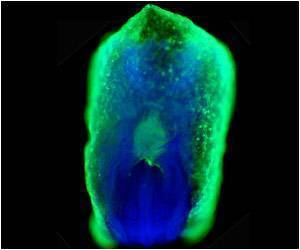
"But instead of rising steadily, atmospheric oxygen levels stabilised at 2% by volume for about two billion years before increasing to today's level of 21%. The reasons for this have been long debated by scientists and we think we've finally found a simple yet robust answer."
A study, published today in Trends in Plant Sciences by researchers from UCL, Queen Mary University of London and Heinrich-Heine-Universität Düsseldorf, proposes for the first time that atmospheric oxygen produced using nitrogenase blocked the enzyme from working.
This negative feedback loop prevented further oxygen from being made and initiated a long period of stagnation in Earth's history about 2.4 billion years ago.
Lasting nearly two billion years, the Proterozoic Eon saw very little change in the evolution of life, ocean and atmosphere composition and climate, leading some to call it the 'boring billion'.
"There are many ideas about why atmospheric oxygen levels stabilised at 2% for such an incredibly long period of time, including oxygen reacting with metal ions, but remarkably, the key role of nitrogenase has been completely overlooked," said study co-author Professor William Martin (Heinrich-Heine-Universität Düsseldorf).
Advertisement
The team says that the negative feedback loop ended only when plants conquered land about 600 million years ago.
Advertisement
This theory is supported by evidence in the fossil record that shows cyanobacteria had begun to protect nitrogenase in dedicated cells called heterocysts about 408 million years ago, once oxygen levels were already increasing from photosynthesis in land plants.
"Nitrogenase is essential for life and the process of photosynthesis as it fixes nitrogen in the air into ammonia, which is used to make proteins and nucleic acids," said co-author Mrs Brenda Thake (Queen Mary University of London).
"We know from studying cyanobacteria in laboratory conditions that nitrogenase ceases to work at higher than 10% current atmospheric levels, which is 2% by volume, as the enzyme is rapidly destroyed by oxygen. Despite this being known by biologists, it hasn't been suggested as a driver behind one of Earth's great mysteries, until now."
Source-Eurekalert










